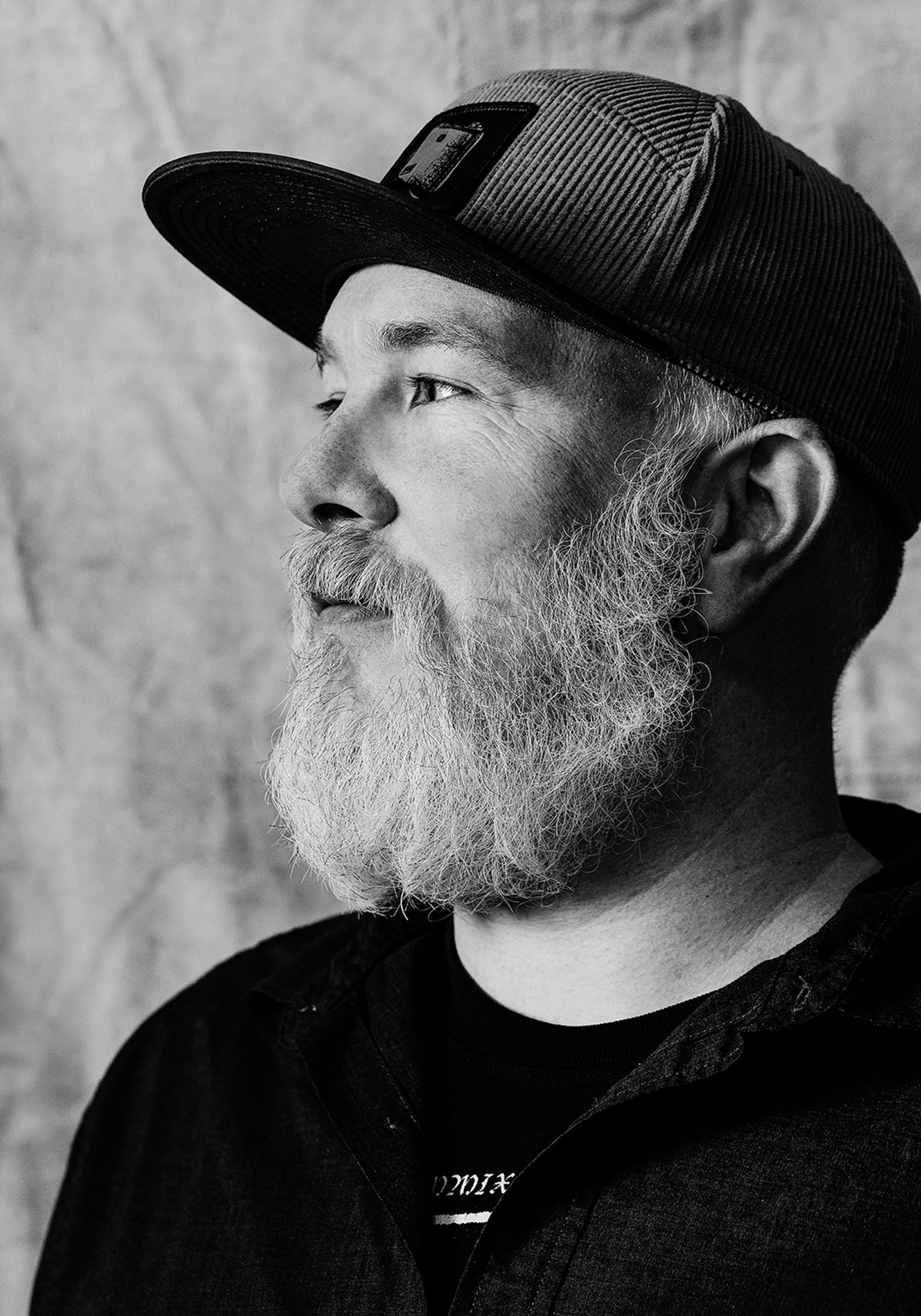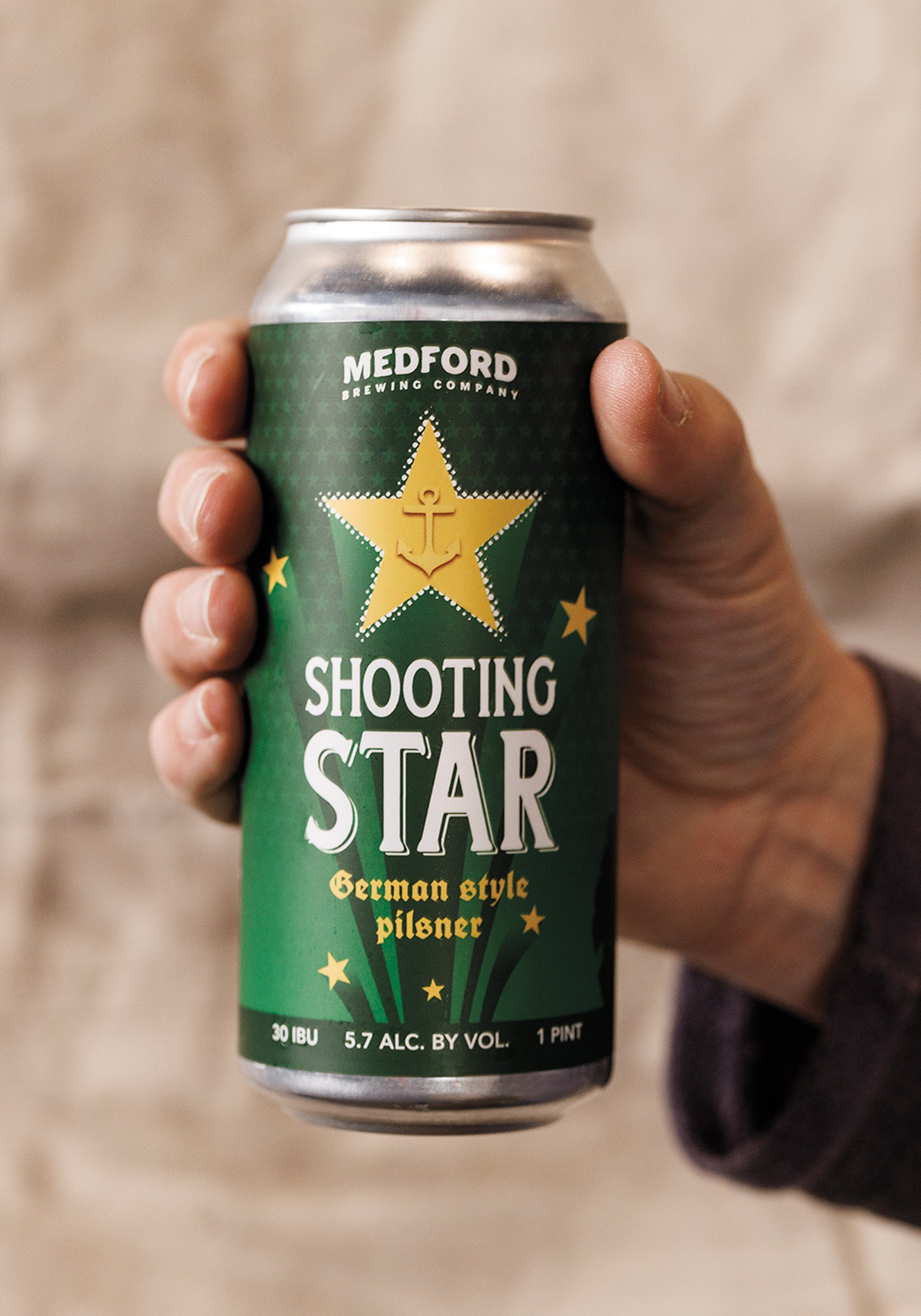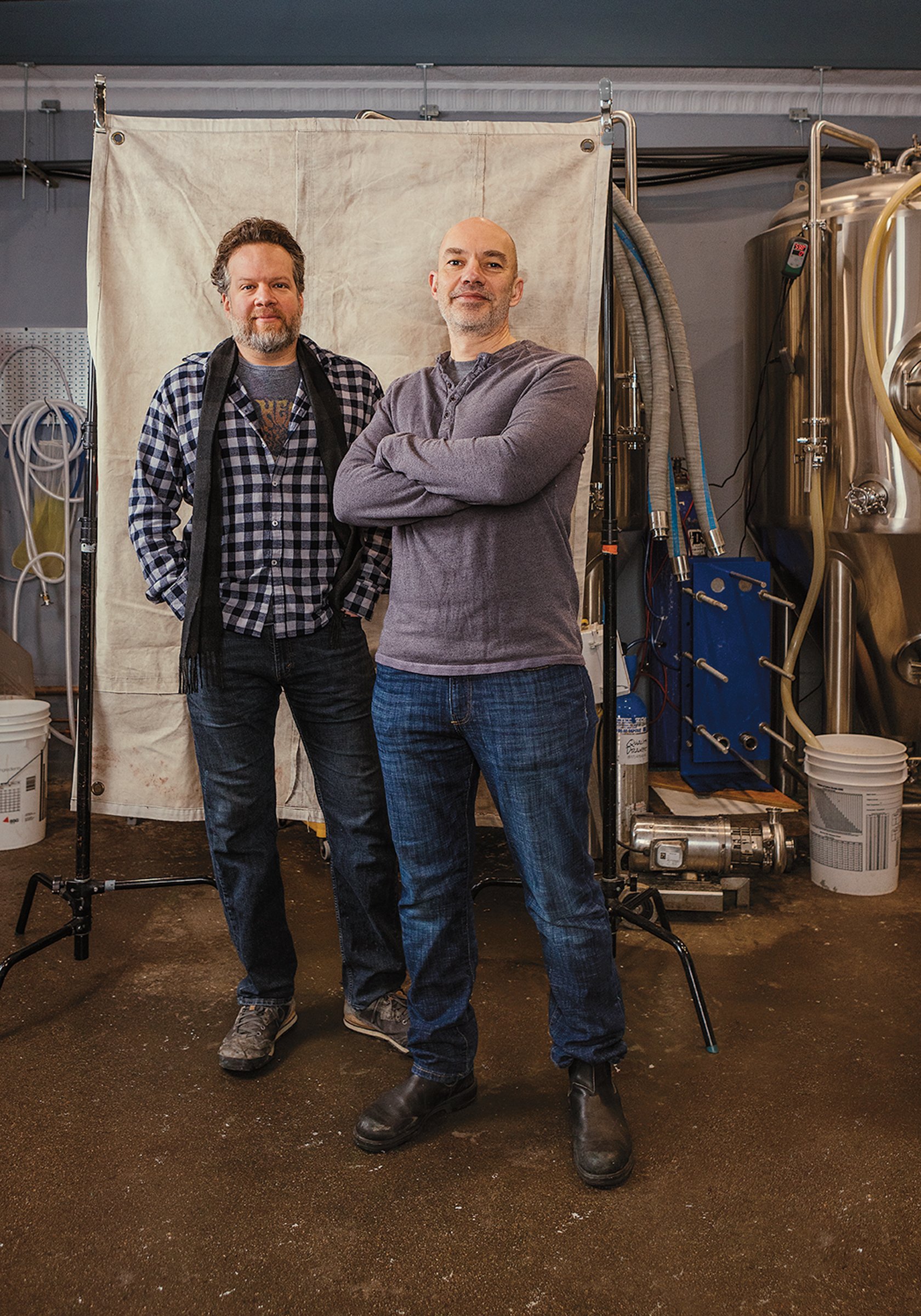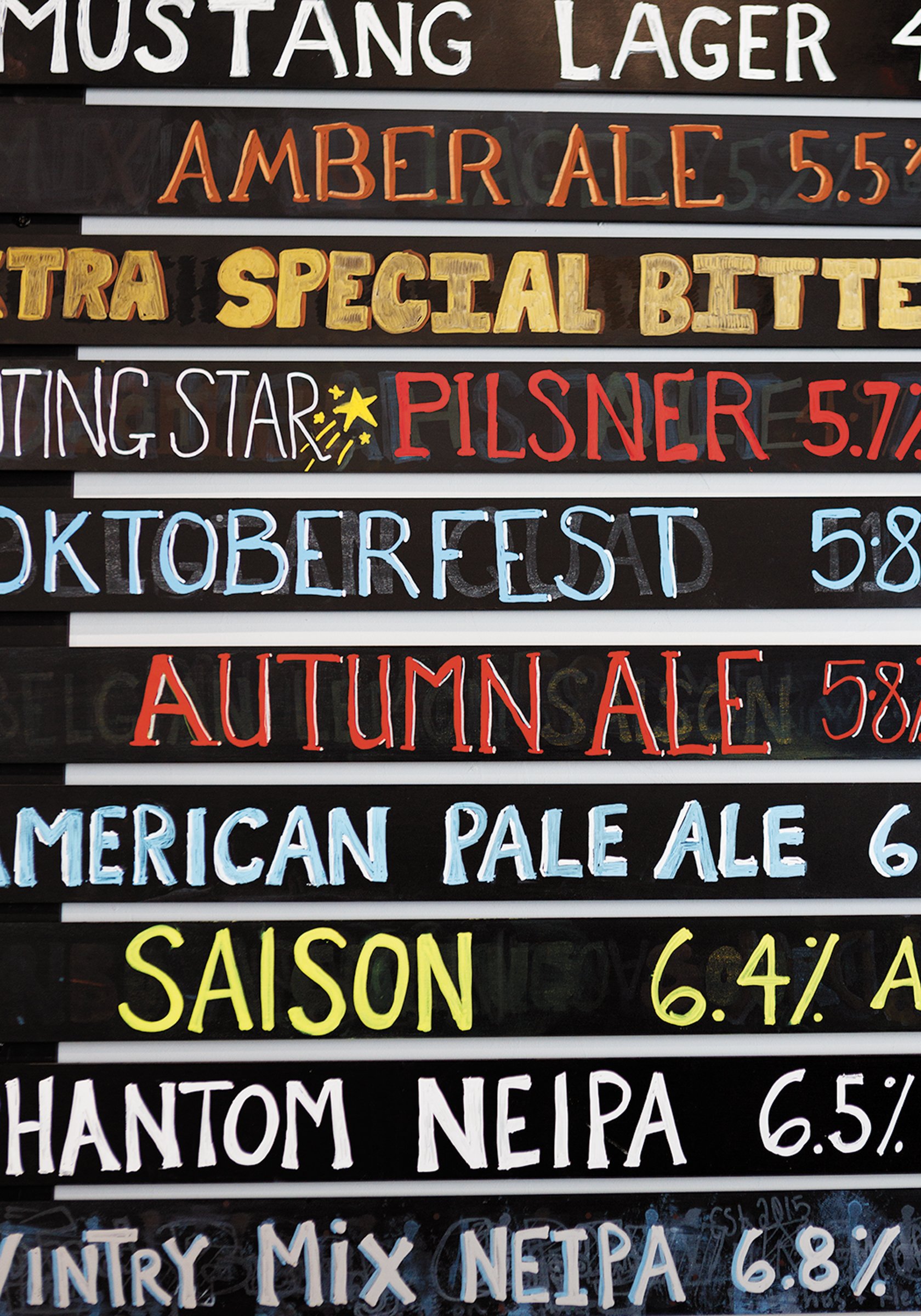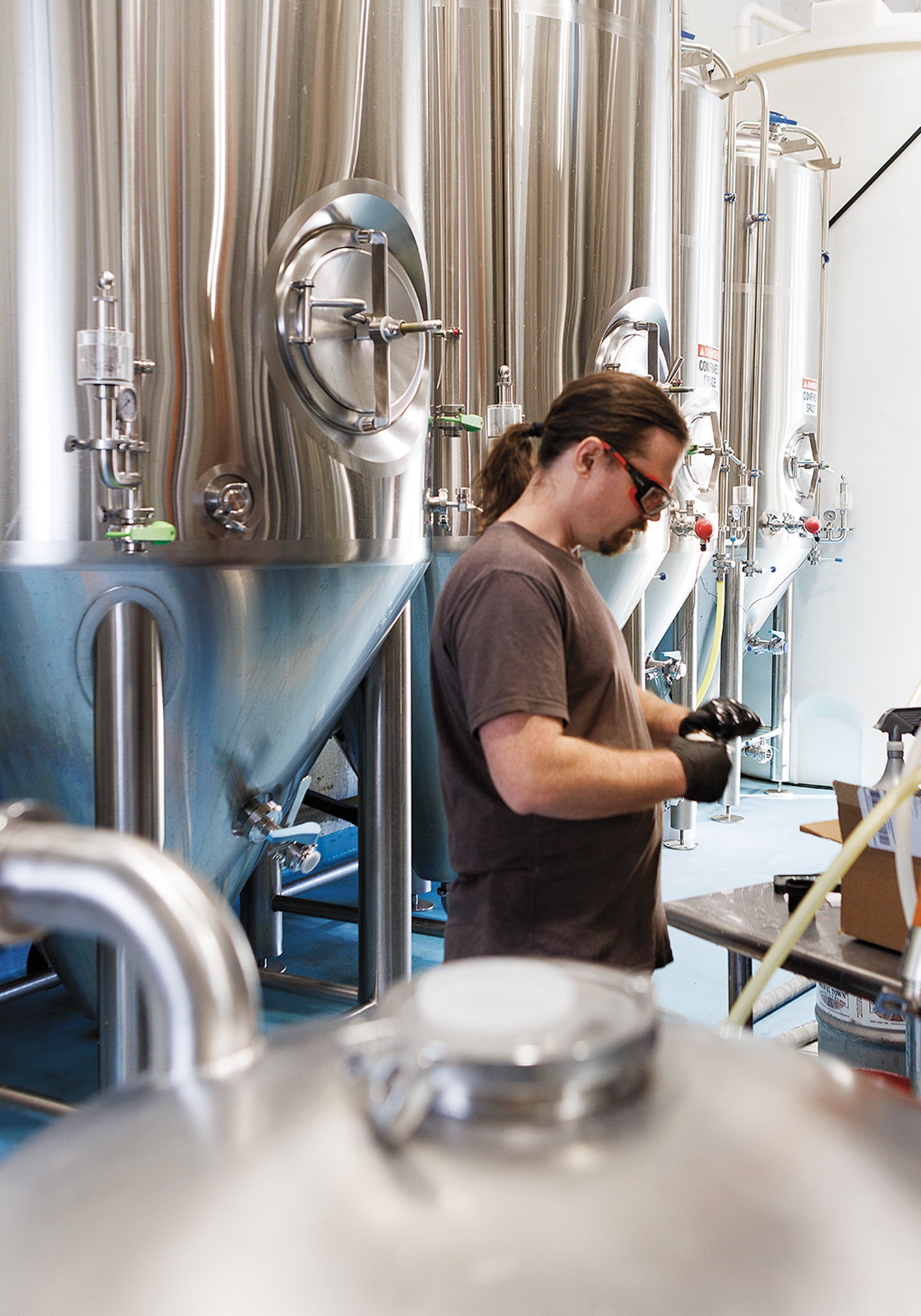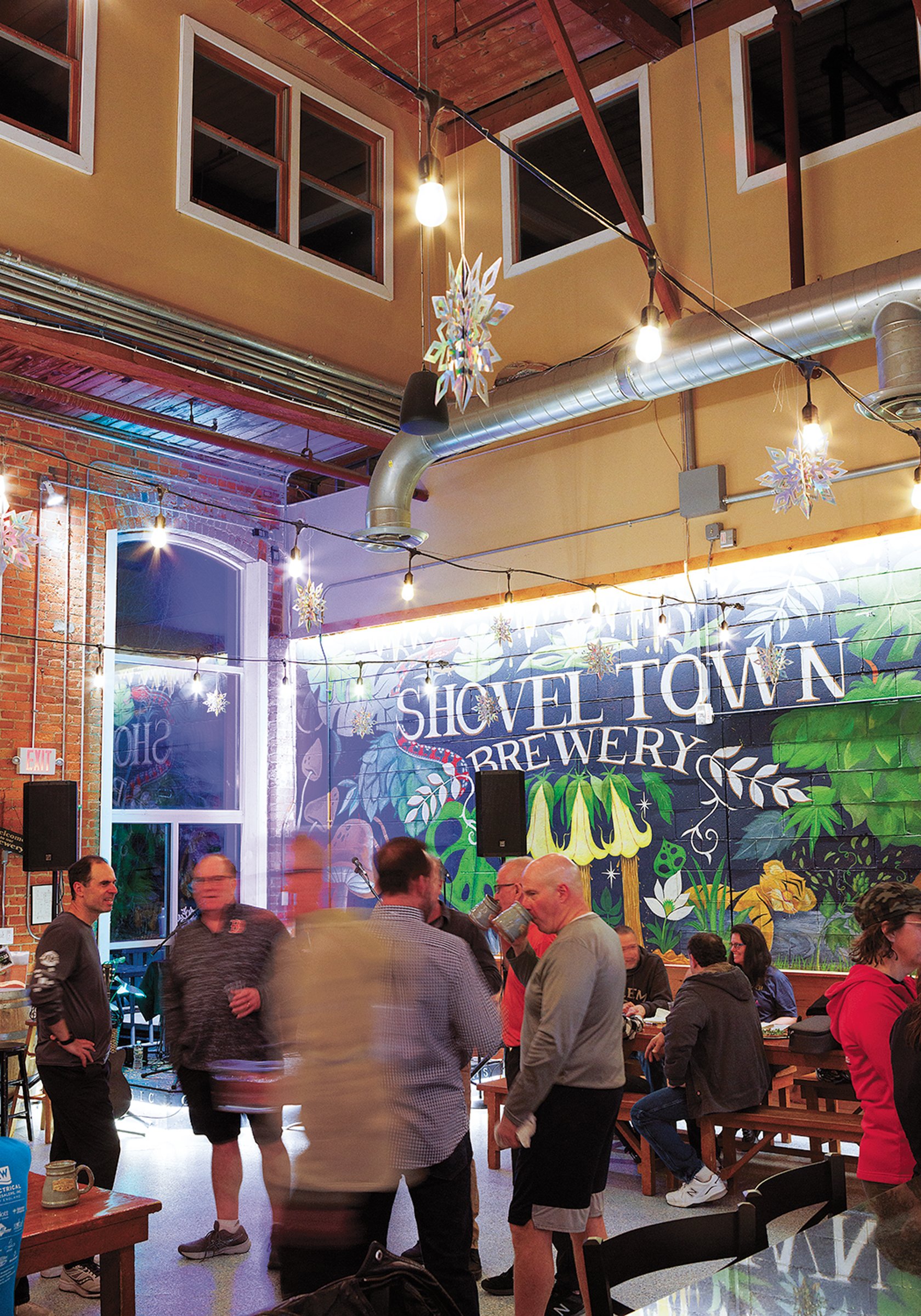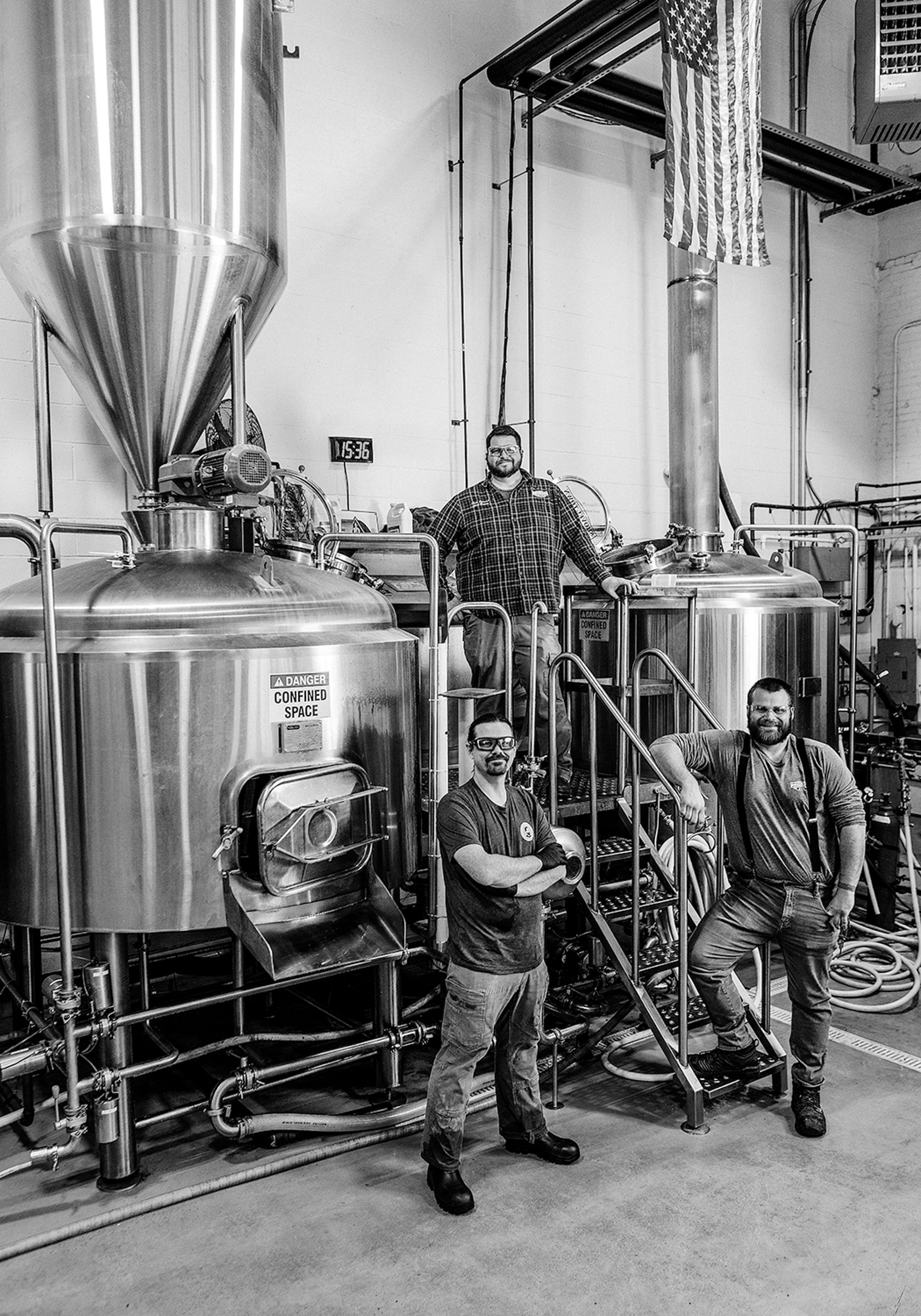Brewed and Renewed: Just outside Boston, three neighborhood breweries share stories of evolution
Photos by Adam DeTour
Nearly half a dozen craft breweries shuttered in Massachusetts last year. Forced outdoors, stripped of its taproom and brewhouse, Maynard’s only brewery almost joined the list.
Amory’s Tomb Brewing Co. spent winter’s end in hibernation, a respite from the construction snares and beer garden washouts that had co-founders Allen Quinn and Rick Barron questioning their commitment to brewing.
Since the end of last April, whether they could pour beer for their customers hinged on the whims of Mother Nature, with their new taproom on Main Street then still an 800-square-foot shell. The bar, tap handles and brewhouse remained pending.
Thanks to a couple of friends’ brewhouses, Quinn continued brewing amid the move. Even on the gloomiest rain-soaked days, familiar faces, to their surprise, kept showing up. The brothers-in-law didn’t quit. Instead, the hardships over the last 10 months triggered introspection, and Quinn and Barron grew more focused.
“We had allowed ourselves to get dragged away from our initial vision a bit,” Quinn says, adding, “Despite all this adversity, we’re finally hitting our stride as a brand.”
Five years ago, Amory’s Tomb—named after Maynard’s founder and his final resting place—started on a quest to build a community around modern farmhouse beer. Historically, European farmers made use of their own grain for brewing, sharing their dry, crisp, tart brews with their seasonal harvesters.
Quinn and Barron didn’t have a farm; they did, however, have a storefront in downtown Maynard and a commitment to using local ingredients. Unfortunately, last April, because of difficult negotiations with a new landlord, they had to pack up and move 100 feet over to 58 Main Street, to a space far from ready for pours.
With their new home stuck in a quagmire of construction delays, they doubled down on their quirkiness, their gothic-metal-rustic aesthetic, and their devotion to beers that too often get overshadowed by the great and powerful hazy IPA.
“How do we do these things on our own terms?” Quinn says of their mind-set toward styles like saisons, grisettes, sours and English bitters.
Visiting the beer garden at Amory’s Tomb this spring, you’ll find one or two IPAs on tap—maybe. The rest are likely dry, lower-alcohol ales and lagers brewed with 95% Northeast-grown and -malted grain and ingredients, Quinn says, “that taste like where we’re from.” A delicate saison with lemon and honey. A brown ale that eases you back into summer’s ethereal brews.
“We’re making things that can be nuanced, but aren’t flashy,” he says. “They aren’t in-your-face. If we say there’s vanilla in there, it’s not going to be as if you’re licking a vanilla bean.”
Quinn serves as brewmaster, a title he owes to Barron’s nudging him on his path to professional brewing; after leaving music, he needed a creative outlet. Barron hounded him to dust off the brewing kit.
“We brewed from our own recipes from day one,” Quinn says. “It gave us our own voice right away.”
Even without a brewhouse, Amory’s Tomb upped its production by over 20% last year, signing with a distributor that ships its beloved Czech pilsner “Manbun Pils” and robust porter, among others, to over 200 retail accounts in Massachusetts and Rhode Island.
As another spring blooms, Amory’s Tomb can remind itself it never wilted in the harshest of conditions for a brewer, as it looks forward to warmer, dryer months for the beer garden and a taproom soon opening for pours.
“There are a lot of places in the face of all of this that would have pulled the plug. We were close to it,” Quinn says. “But things line up and you take the wins as you can. We’re fairly patient, as well. Maybe to our own detriment. We’re here for the beer. We have faith in what we’re making and I feel it should be out there.”
A NEW BREWERY ENLIVENS A LONGTIME BREWER
After 18 years of brewing, Max Heinegg had just about run out of firsts along his epic craft beer journey. A little over a year ago, though, he found his relationship with brewing transformed.
Membership in the 40-year-old home brewing club Boston Worts Processors, 31 awards for brewing, a certification to judge beer and stints at a few state breweries—Heinegg immersed himself in craft beer even before he and fellow soccer dad Nick Bolitho founded Medford Brewing Company in 2015.
Yet for its first seven years as a brewery, Medford Brewing didn’t have a permanent home. Heinegg’s recipes were reproduced on contract by another brewery and shipped out to distribution to over 200 shops. He had control, but to a point; their beer had success in the market, again—to a point.
“The truth of the matter is, without a sales team or people to be out there selling your beer, it’s hard to be able to compete with the big boys,” Heinegg says of life battling for shelf space.
Medford Brewing thirsted for a taproom, and it needed to end up in its namesake city, where both Heinegg and Bolitho are engaged in the community. Heinegg’s daughter goes to Medford High School, where he teaches English. And from 2025 to 2027, he will have the distinction of being Medford’s poet laureate.
They struggled to find the right location for Medford Brewing until they visited a former auto repair shop on Harvard Avenue, near the commuter rail station in West Medford and the city’s restaurant hub. The search proved the easy part. Months of working with city officials to tweak the ordinances to allow for a brewery began.
In 2019, after cutting through the red tape, they set out to secure funding for the brewery and turned to the community for help, launching a successful crowdfunding campaign that raised over $280,800, which they pledged to pay back.
“When we raised money to buy the building, local people supported us and helped us make it happen,” says Heinegg. “We knew that we were wanted.”
Medford Brewing bought the old garage at 30 Harvard Avenue in 2021. Fourteen months later, their new taproom and brewhouse opened.
“It was completely transformative. We’re a part of the community now,” Heinegg says.
Just like in his basement when he homebrewed, Heinegg has total control over his brews. And he lives just a mile away from the brewery, so he can pop in easily to check on a batch.
A year since its opening, the taproom is abuzz. Heinegg and Bolitho have over a dozen beers on tap, a wide range of styles from lagers to hoppy ales, Belgians, stouts and sours, and a full slate of weekly and monthly events like poetry readings and food pop-ups. Heinegg’s love of music—three decades of making records in Boston’s music scene—reverberates through the taproom, too, as well-respected and younger acts regularly come in to perform.
“The goal is to be a gastronomic experience,” Heinegg says, “but it’s also a cultural experience.”
Before, Medford Brewing’s beer saw the inside of a truck and a shelf in a liquor store. Now, Heinegg and Bolitho can greet their customers from behind the bar, clink glasses and connect with them in a more meaningful way.
“It’s night and day,” Heinegg says.
A SECOND SHOVEL FOR SHOVEL TOWN
Shovel Town Brewery hasn’t set down its spade since it broke ground in the brewing industry in 2017. Easton’s first brewery wants to constantly disturb the earth around itself, in search of gold.
Co-founders James McSherry and Frank Altieri took over a small section of a former shovel factory in Shovel Town—so named because Easton was home to America’s first shovel factory—and quickly outgrew the space.
They increased the size of their brewhouse, first to a two-barrel system, then five, then 15. Their portfolio of brews ballooned. The brand became more inventive and polished. Still, they dug. In December 2022, Shovel Town expanded into the restaurant business, opening Station One in an old firehouse on the Foxboro Common. Most recently, the taproom in Easton underwent a series of rapid-fire renovations, including installing a new floor as well as the addition of more tables and better lighting.
“From an outsider’s perspective it may look like we’re refocusing ourselves, but it’s just kind of an evolution of the business,” says Altieri.
Shovel Town now has an array of options to feed and hydrate their guests. Station One has a vast open dining room, with a long bar and intricately-designed taps in the shape of tiny shovels. You can order cocktails, wine and beer brewed on the restaurant’s small pilot brew system. The menu is filled with inventive pizzas—from the traditional meatball and ricotta to the wild chili pork belly pie with a spicy barbecue citrus base—and sandwiches like fried pork cutlet with gochujang BBQ and kimchi.
“The restaurant has helped us take the next step,” Altieri says.
amorystomb.com
58A Main Street, Maynard
medfordbrew.com
30 Harvard Avenue, Medford
shoveltownbrewery.com
50 North Oliver Street, North Easton
This story appeared in the Spring 2024 issue, and had an error on the title page in print. The author, as you can see here, is Matthew Tota, not Margaret LeRoux. Our sincere apologies to both Matt and Margaret.



